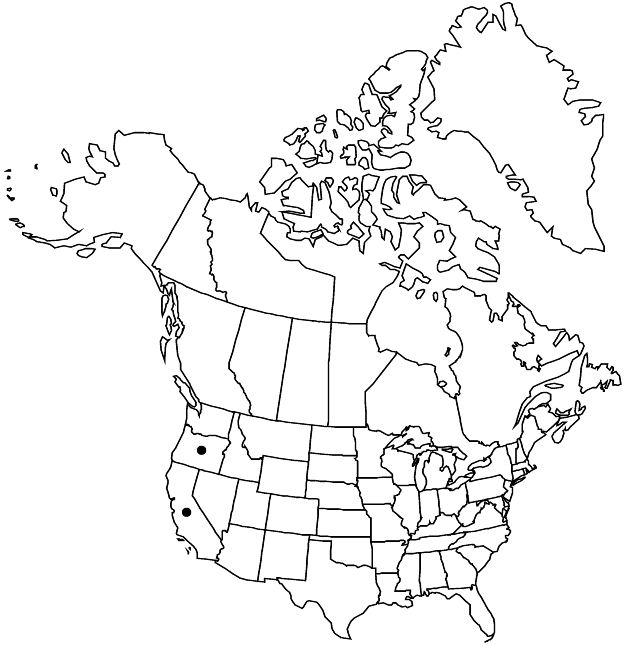Viola purpurea var. dimorpha
Mentzelia 1: 8. 1976.
Plants 3–25 cm. Stems spreading to erect, usually not buried, usually elongated by end of season, puberulent. Leaves: basal: 1–6; petiole 1.8–8.5 cm, puberulent; blade usually purple-tinted abaxially, green adaxially, ± orbiculate to ovate, 0.8–3 × 0.5–2.2 cm, base cordate or truncate, margins irregularly dentate or crenate with 3–4 rounded and/or pointed teeth per side, apex obtuse to rounded, surfaces puberulent; cauline: petiole 0.5–4.1 cm, puberulent; blade ovate to lanceolate to ± oblong, 1.2–2.7 × 0.7–1.9 cm, length 0.8–2.5 times width, base attenuate, oblique or not, subcordate, or truncate, margins entire, crenate, serrate, or repand-denticulate, apex acute to obtuse, surfaces canescent. Peduncles 4.6–6 cm, puberulent. Lowest petals 6–11 mm. Capsules 5–6.5 mm. Seeds dark brown, 2.2–2.9 mm.
Phenology: Flowering May–July.
Habitat: Pine, fir, cedar forests
Elevation: 1200–2500 m
Discussion
Selected References
None.
